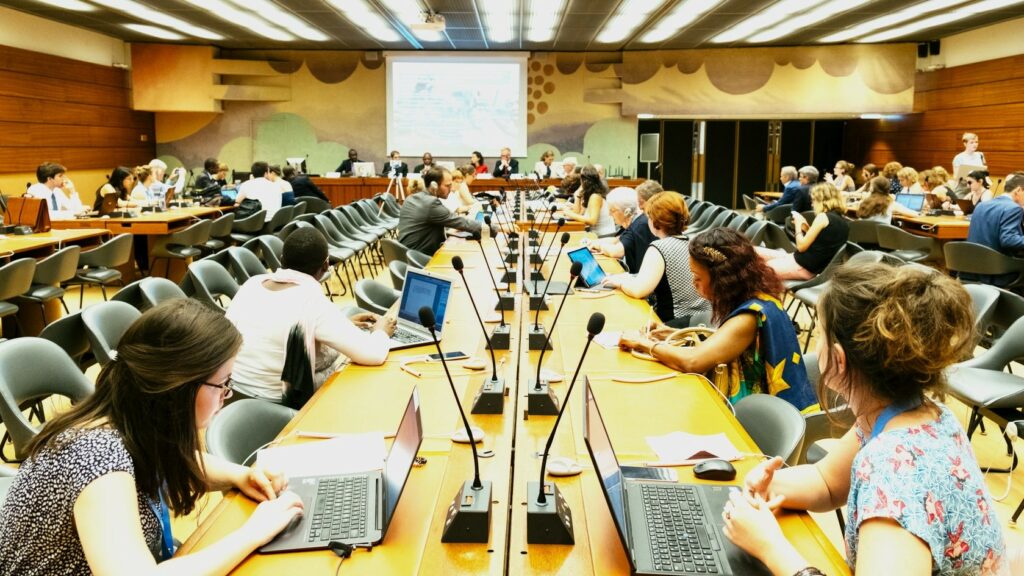On June 20, parallel to the 35th session of the Human Rights Council, Franciscans International and other international organizations held an event discussing the political deadlock and deteriorating human rights situation in the Democratic Republic of the Congo (DRC).
Currently the DRC is in a political paralysis where the electoral process is in a standstill and democratic elections are dangerously threatened.
In light of President Kabila’s unconstitutional stay in power past his final mandated term on 19 December 2016, opposition forces, civil society and the Government reached an agreement on 31 December 2016, the Accord de la Saint Sylvestre (the New Year’s Eve Agreement). At the core of this document is the imposition of a tangible commitment to hold democratic elections prior to the end of 2017.
Nevertheless, progress in the implementation of the Agreement has stalled, undermining the electoral process and a peaceful, democratic transition of power, as well as fuelling opposition and animosity towards the Presidential Majority.
Consequently, the absence of a prompt implementation of the New Year’s Eve Agreement has had irrefutable repercussions on the security and human rights situation in the country. There has been an increase in violations of the rights to liberty and security, freedom of opinion and expression, association and peaceful assembly. Cases of arbitrary detention, excessive use of force and mass arrests have also risen in a country where the United Nations estimates at least 2.7 million internally displaced persons and approximately 450,000 DRC refugees in other nations.
In this context, Msgr. Fridolin Ambongo Besungu, Vice-President of the National Episcopal Conference of Congo (CENCO), outlined the impediments and challenges faced in the absence of the implementation of the New Year’s Eve Agreement. He said, “We have encountered ourselves in front of a wall, witnessing a global process of destabilization.” He also acknowledged the effects of mass poverty and weakening of the opposition forces in contributing to the deteriorating situation in the DRC. In concluding, he called for the need to conduct an independent international investigation on the atrocities committed in Kasai and on other major cases.
Mr. Fred Bauma, member of Lutte pour le Changement (LUCHA), highlighted the lack of concrete action taken by the international community in regards to the political crisis and recurring human rights abuses. Further, he urged states to combat impunity.
Ms. Ida Sawyer, the Central Africa Director of Human Rights Watch, shed light on the violent tensions in the Kasai region—situated in the centre of the country—and stressed the responsibility and duty of states to take effective action.
Mr. José Maria Aranaz, Director of the UN joint Human Rights Office, Kinshasa, underscored the lack of political will to bring perpetrators of human rights abuses to justice. He challenged the international community to establish accountability through exercising its political responsibility.
Mr. Carl Hallergard, Deputy Head of the European Union to the United Nations in Geneva, concluded the dialogue highlighting the importance of interaction between the international community and the Government of the DRC in overcoming this political and human rights crisis.
Author: Uendi Begaj
See the webcast of the event on Franciscans International’s Facebook page.

